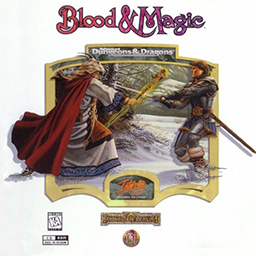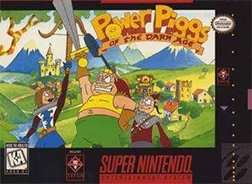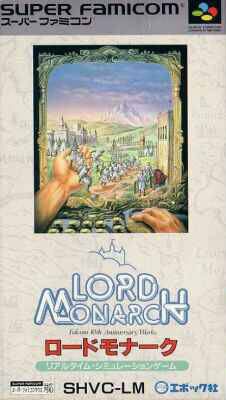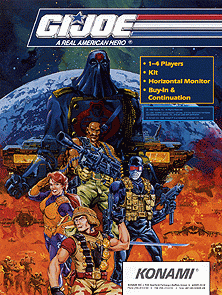
A strategy game or strategic game is a game in which the players' uncoerced, and often autonomous, decision-making skills have a high significance in determining the outcome. Almost all strategy games require internal decision tree-style thinking, and typically very high situational awareness.
Real-time strategy (RTS) is a subgenre of strategy video games that does not progress incrementally in turns, but allow all players to play simultaneously, in "real time". By contrast, in turn-based strategy (TBS) games, players take turns to play. The term "real-time strategy" was coined by Brett Sperry to market Dune II in the early 1990s.

Medieval: Total War is a turn-based strategy and real-time tactics computer game developed by Creative Assembly and published by Activision. Set in the Middle Ages, it is the second game in the Total War series, following on from the 2000 title Shogun: Total War. Originally announced in August 2001, the game was released in North America on 19 August 2002 and in Europe on 30 August for Microsoft Windows.

The Uncanny X-Men, sometimes referred to as Marvel's X-Men, is an action video game released by LJN for the NES in 1989. It is a licensed game based on the series of X-Men comics of the same name by Marvel Comics. The lineup of characters in the game is very close to those appearing in the 1989 animated pilot X-Men: Pryde of the X-Men.

Lords of the Realm is a turn-based strategy computer game published and developed by Impressions Games. It was first released on June 15, 1994, and is the first game in the Lords of the Realm series.

Blood & Magic is a real-time strategy video game released by Interplay Productions in 1996 which uses the Dungeons & Dragons license.

Barbie: Game Girl is a 2D platform game released in 1992 for the Game Boy based on the Barbie doll franchise.

Medieval II: Total War is a strategy video game developed by the since-disbanded Australian branch of The Creative Assembly and published by Sega. It was released for Microsoft Windows on 10 November 2006. Feral Interactive published versions of the game for macOS and Linux on 14 January 2016. It is the sequel to 2002's Medieval: Total War and the fourth title in the Total War series.
Real-time tactics (RTT) is a subgenre of tactical wargames played in real-time, simulating the considerations and circumstances of operational warfare and military tactics. It is differentiated from real-time strategy gameplay by the lack of classic resource micromanagement and base or unit building, as well as the greater importance of individual units and a focus on complex battlefield tactics.

Seven Kingdoms is a real-time strategy (RTS) video game developed by Trevor Chan of Enlight Software. The game enables players to compete against up to six other kingdoms allowing players to conquer opponents by defeating them in war, capturing their buildings with spies, or offering opponents money for their kingdom. The Seven Kingdoms series went on to include a sequel, Seven Kingdoms II: The Fryhtan Wars. In 2007, Enlight released a further title in the Seven Kingdoms series, Seven Kingdoms: Conquest.

Power Piggs of the Dark Age is a 2D hack and slash platform game developed by Radical Entertainment and published by Titus Software. It was released in 1996 for the Super NES in North America, and in the PAL regions the following year. A Sega Mega Drive version was planned but never released.

Kingdom Under Fire: Circle of Doom is a 2007 action role-playing game developed by Blueside and published by Microsoft Game Studios for the Xbox 360. It is the fourth installment in the Kingdom Under Fire series. Chronologically the game's story follows Kingdom Under Fire: The Crusaders released in 2004. Unlike the previous Kingdom Under Fire games, Circle of Doom lacks the real-time strategy elements, with much of the gameplay focus being on hack and slash combat.

Kingdom Under Fire: The Crusaders is a tactical wargame developed by the Korean studio Phantagram for the Xbox. It is the sequel to the 2001 game Kingdom Under Fire: A War of Heroes, and continues its storyline. Kingdom Under Fire: The Crusaders combines third-person action and role-playing elements in its gameplay, which differs from its predecessor.

Kingdom Under Fire: Heroes is an action strategy game, the prequel to Kingdom Under Fire: The Crusaders, released in 2005 for the Xbox.

Warhammer 40,000: Dawn of War – Dark Crusade is the second expansion to the real-time strategy video game Warhammer 40,000: Dawn of War developed by Relic Entertainment and published by THQ. Based on Games Workshop's tabletop wargame, Warhammer 40,000, Dark Crusade was released on October 9, 2006. The expansion features two new races, the Tau Empire and the Necrons. Including the Imperial Guard from Dawn of War's first expansion pack Winter Assault, a total of seven playable races in this expansion.

Medieval II: Total War Kingdoms is the expansion to the 2006 turn-based strategy PC game Medieval II: Total War. It was developed by Creative Assembly. The expansion was released on 28 August 2007 in North America and adds four campaigns.

Lord Monarch is a real-time strategy war game by Nihon Falcom. The game is considered to be part of the Dragon Slayer series. It was originally released in 1991 for the NEC PC-9801, ported 1992 to the Super Famicom and 1994 to the Mega Drive. In 1997, it was remade for Windows as Lord Monarch Online and released for free in both Japanese, and for the first time, English. Lord Monarch is one of the 42 titles included in the Japanese version of the Mega Drive Mini.
Strategy is a major video game genre that emphasizes thinking and planning over direct instant action in order to achieve victory. Although many types of video games can contain strategic elements, as a genre, strategy games are most commonly defined as those with a primary focus on high-level strategy, logistics and resource management. They are also usually divided into two main sub-categories: turn-based and real-time, but there are also many strategy cross/sub-genres that feature additional elements such as tactics, diplomacy, economics and exploration.

G.I. Joe is a third-person rail shooter video game produced by Konami and released in 1992 for video arcades. It is based on the cartoon series G.I. Joe: A Real American Hero and stars four characters from the show: Duke, Snake Eyes, Scarlett, and Roadblock.

















